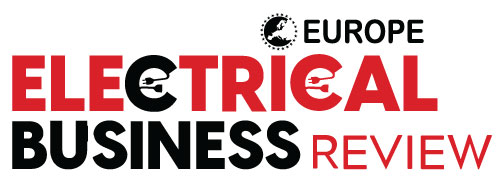Thank you for Subscribing to Electrical Business Review Weekly Brief
Businesses Embrace Renewable Energy Integration to Slash Carbon Footprint and Boost Bottom Line
Electrical Business Review | Wednesday, October 18, 2023
A sweeping shift towards sustainable business practices is transforming industries, with an increasing number of businesses harnessing the power of renewable energy sources to not only reduce their environmental impact but also realise substantial cost savings.
FREMONT, CA: Solar, wind, and hydro energy integration are at the forefront of this movement, revolutionising the way companies operate while championing a cleaner and more sustainable future.
Solar Energy: Illuminating a Greener Path
Stay ahead of the industry with exclusive feature stories on the top companies, expert insights and the latest news delivered straight to your inbox. Subscribe today.
Solar energy integration has emerged as a beacon of hope for businesses aiming to reduce their carbon footprint. Across the globe, companies are installing solar panels on rooftops, parking lots, and even remote sites to generate clean electricity from the sun's rays. This not only contributes to a decrease in greenhouse gas emissions but also offers a tangible return on investment by cutting energy costs.
In the United States, retail giant Walmart has embarked on an ambitious solar energy initiative. With solar panels installed across hundreds of its stores, distribution centres, and corporate facilities, Walmart is generating a significant portion of its energy needs from renewable sources. This initiative not only aligns with the company's sustainability goals but also demonstrates the financial viability of solar energy integration for businesses.
Wind Energy: Riding the Wind of Change
Harnessing the power of wind has become a hallmark of progressive businesses committed to sustainability. Wind turbines, whether onshore or offshore, are tapping into the planet's natural wind currents to produce clean and abundant electricity. Companies are increasingly entering power purchase agreements (PPAs) with wind farms, securing a stable source of renewable energy for their operations.
In Europe, Danish pharmaceutical company Novo Nordisk has embarked on a wind energy journey. By partnering with wind farms in Denmark, Novo Nordisk has not only slashed its carbon emissions but also secured a long-term, cost-effective energy source. This commitment to wind energy integration not only resonates with environmentally conscious consumers but also bolsters the company's reputation as a sustainability leader.
Hydro Energy: Tapping into Nature's Flow
Hydropower integration is making waves as businesses tap into the kinetic energy of flowing water to generate electricity. Whether through large-scale hydroelectric plants or micro-hydro installations, companies are embracing the versatility and reliability of hydro energy. By harnessing the power of rivers and waterways, businesses are reducing their reliance on fossil fuels and minimising their environmental impact.
In Canada, brewery giant Molson Coors is making a splash with its hydro energy integration efforts. By utilising a micro-hydro installation at its Montreal brewery, Molson Coors is harnessing the energy potential of the nearby St. Lawrence River to power a portion of its operations. This innovative approach not only reduces the brewery's carbon footprint but also showcases the adaptability of hydro energy integration for industrial use.
Charting a Sustainable Future: Collaborative Efforts
The trend of integrating renewable energy sources into business operations reflects a broader commitment to sustainability, driven by a growing awareness of climate change and the benefits of clean energy. Governments, industries, and consumers are increasingly aligned in their support for renewable energy integration, creating an ecosystem where businesses thrive while contributing to a more sustainable planet.
As we stand at the crossroads of environmental responsibility and economic growth, the integration of solar, wind, and hydro energy into business operations represents a pivotal step forward. With each megawatt-hour generated from renewable sources, companies are not only lowering their carbon footprint but also illuminating a path toward a future powered by clean, affordable, and abundant energy.
More in News




